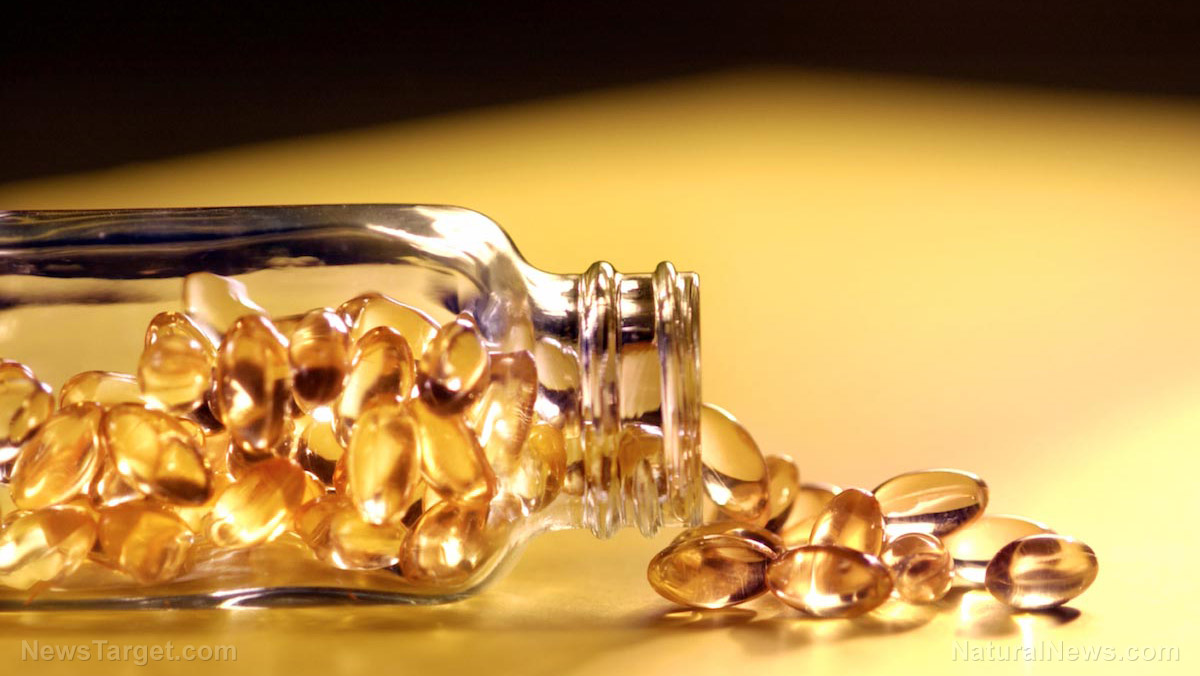Dreading menopause? Delay it with a healthy diet!
08/06/2019 / By Evangelyn Rodriguez

Menopause is a female-exclusive condition associated with hormonal symptoms like hot flashes, mood swings, sleep problems, and weight gain. While menopause is often attributed to hormonal changes caused by aging, a recent study conducted by British researchers from the University of Leeds reported a surprising new finding: Menopausal age may be influenced by certain foods.
Menopause symptoms and natural age
Menopause is a natural phenomenon experienced by women. This is usually preceded by telltale signs that can sometimes affect a woman’s physical and emotional well-being. These symptoms, which are driven by hormonal changes and can be alleviated by extensive hormone therapy, include:
- Irregular periods
- Vaginal dryness
- Hot flashes
- Chills
- Night sweats
- Sleep problems
- Mood changes
- Weight gain and slowed metabolism
- Thinning hair and dry skin
- Loss of breast fullness
Menopause symptoms may vary among women. Menopausal age also shows a similar variance. While the normal age at which women experience menopause ranges between 45 and 55, some women encounter menopause at an earlier or later age. This baffling difference led researchers from the U.K. to conduct a study in order to determine the cause behind this anomaly.
Certain foods play a role in determining menopausal age
According to the researchers, the age of natural menopause is of concern to women, especially those of reproductive age, as early or late menopause have certain health implications. Their goal was to determine whether diet has any influence on the occurrence of menopause.
For their investigation, the researchers enlisted the help of women aged 40 to 65 who were also part of another cohort study in the U.K. They used a food frequency questionnaire to monitor the women’s individual diets and also recorded the women’s reproductive history. The researchers defined natural menopause as the complete cessation of menstrual periods for 12 consecutive months.
After four years, the researchers conducted a follow-up and reported that 914 of the participants experienced natural menopause. Data gathered through the food questionnaires showed that high intake of oily fish, fresh legumes, vitamin B6, and zinc was associated with onset of menopause at a later age. Meanwhile, consumption of refined foods like pasta and rice was associated with the onset of menopause at an early age.
Based on their findings, the researchers concluded that certain foods and nutrients can influence the age of natural menopause. Controlling these dietary factors may be helpful in ensuring the timely onset of this natural process.
The importance of the study’s findings
Early menopause is linked to a variety of health problems, such as low bone density and an increased risk of heart disease and osteoporosis. Late menopause, on the other hand, is linked to a higher risk of breast, ovarian, and endometrial cancers. (Related: Avoid menopause induced bone loss and disease.)
According to Janet Cade, one of the authors of the study, understanding how diet affects menopause is important for women, especially since there are those who have a family history of complications related to menopause. While other factors can also influence menopausal age, Cade and her team’s study was the first to show the impact of food on natural menopause.
Jessica Drummond, founder and CEO of The Integrative Women’s Health Institute, believe that the study is useful to women because it could help them delay menopause. She believed that doing this is beneficial for them.
“It’s beneficial to delay menopause, because with longer exposure to premenstrual estrogen from ovarian production, there are protective effects for the heart, brains, bones, sexual health, and joint health,” she explained.
“We hope and believe that these findings might prompt future clinical trials, which could show causal relationships between diet and natural menopause,” Drummond added.
Experts agree that the study is a significant step in the right direction. After all, food and nutrition has a tremendous impact on people’s overall health and wellness, and the results of the study further solidify this fact.
Sources include:
Submit a correction >>
Tagged Under:
#nutrition, aging, breakthrough, clean food, diet, discovery, Fertility, hormonal changes, longevity, Menopause, natural menopause, research, women's health
This article may contain statements that reflect the opinion of the author
RECENT NEWS & ARTICLES
FoodCures.News is a fact-based public education website published by Food Cures News Features, LLC.
All content copyright © 2018 by Food Cures News Features, LLC.
Contact Us with Tips or Corrections
All trademarks, registered trademarks and servicemarks mentioned on this site are the property of their respective owners.





















